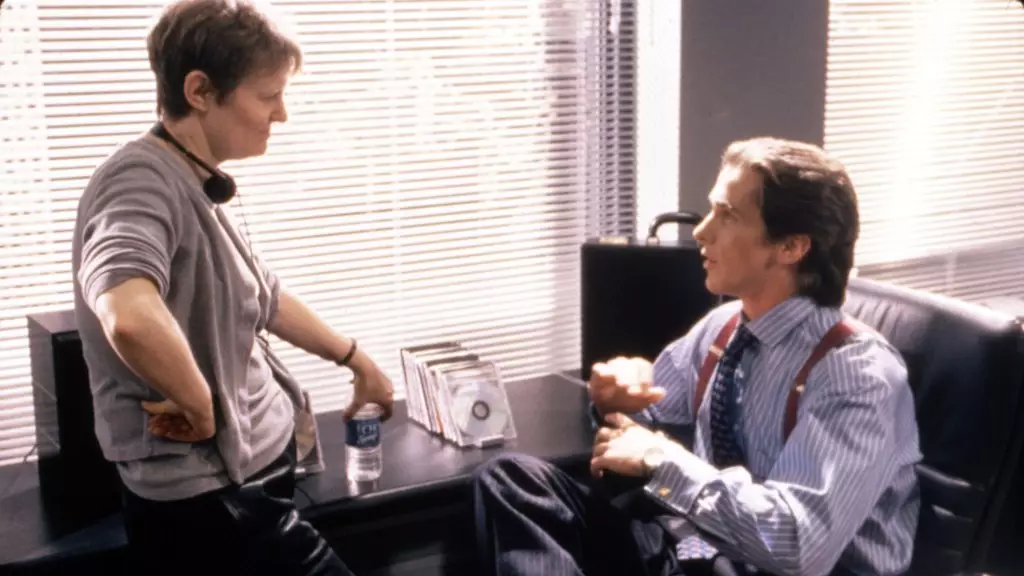Twenty-five years have passed since the release of “American Psycho,” a film that continues to provoke conversation and confusion in equal measure. Directed by Mary Harron, it has been labeled both an artistic triumph and a misunderstood commentary on corporate greed and toxic masculinity. In an interview with Letterboxd Journal, Harron delves into the layers of the film’s legacy, inviting a critical examination of its themes in a contemporary context. With the nation now navigating the complexities of a politically charged era, particularly through the lens of Donald Trump’s presidency, the film’s portrayal of a predatory society feels all the more relevant.
As Harron articulates, the social landscape has exacerbated the disparities between wealth and poverty. Instead of diminishing, the divide has deepened, rendering the satire within “American Psycho” chillingly prophetic. The director’s comments unveil how the very forces of exploitation that Patrick Bateman embodies have, in a sense, become more mainstream. With a greater spotlight on wealth inequality and destructive societal norms, revisiting the film almost urges audiences to confront their complicity in the issues it critiqued.
Misinterpretation of Satire
Despite its critical intent, “American Psycho” has drawn a rather perplexing following among certain demographics, notably the “Wall Street bro” archetype that Harron acknowledges. This faction seems to celebrate rather than critique the very behaviors the film seeks to lampoon. The disconnect lies in a misinterpretation of the protagonist, portrayed by Christian Bale, who clearly embodies a tragic exaggeration of hypermasculinity and capitalism gone awry. However, viewers who fail to recognize the absurdity masked within Bateman’s character risk endorsing a culture of privilege rather than challenging it.
Harron’s remarks about the essence of the film’s humor reveal an inherent clash between intention and reception. This phenomenon isn’t limited to “American Psycho”; it speaks to broader cultural miscommunications where satire becomes fodder for identification rather than critique. Harron poignantly emphasizes that the film, much like Bret Easton Ellis’s novel, serves as a commentary on the socially constructed notion of masculinity and the rituals among men that involve competition and body image fixation. The intended “gay male satire” seems lost on many who gravitate towards a surface-level understanding of its violent aesthetics.
Empowerment Through the Female Lens
Interestingly, Harron is heartened by a new wave of appreciation for the film coming predominantly from younger women. Their embrace of “American Psycho” starkly contrasts the backlash the film faced during its initial release. This evolving conversation speaks volumes about changing social perceptions. Young women today appear to grasp the layered critique of exploitation and consumption that transcends mere horror. Instead of vilifying the film for its violence, they are seeing it as a rich text that critiques the very structures that constrict them.
The director’s acknowledgment of this shift highlights a critical point: “American Psycho” transcends its political and gender critiques, functioning as a cultural mirror reflecting societal ailments. The very fact that young women are inclined to find empowerment through a narrative that critically dissects masculinity suggests a progression in feminist discourse—one that allows for discussions of power dynamics in more nuanced terms.
A Contemporary Reimagining
With the upcoming reboot of “American Psycho,” directed by Luca Guadagnino, a new generation will have the opportunity to engage with this iconic story. The involvement of a fresh creative team might pave the way for reinterpretations that enhance the original’s subtext. It invites speculation about how contemporary filmmakers will navigate the complex waters of social critique amid an even more intricate landscape of modern masculinity and capitalist realities.
This resurgence could also reignite discussions about the film’s profound implications within today’s sociocultural climate. As Harron reflects on the original work, her pride in its ongoing relevance underlines an essential dialogue about art as a reflection of society. Ultimately, this powerful narrative continues to challenge both viewers’ perceptions of masculinity and the structural inequalities that shape our collective existence. “American Psycho” is more than just a film; it serves as an urgent reminder to critically engage with the narratives we inherit and those we choose to perpetuate.


Leave a Reply